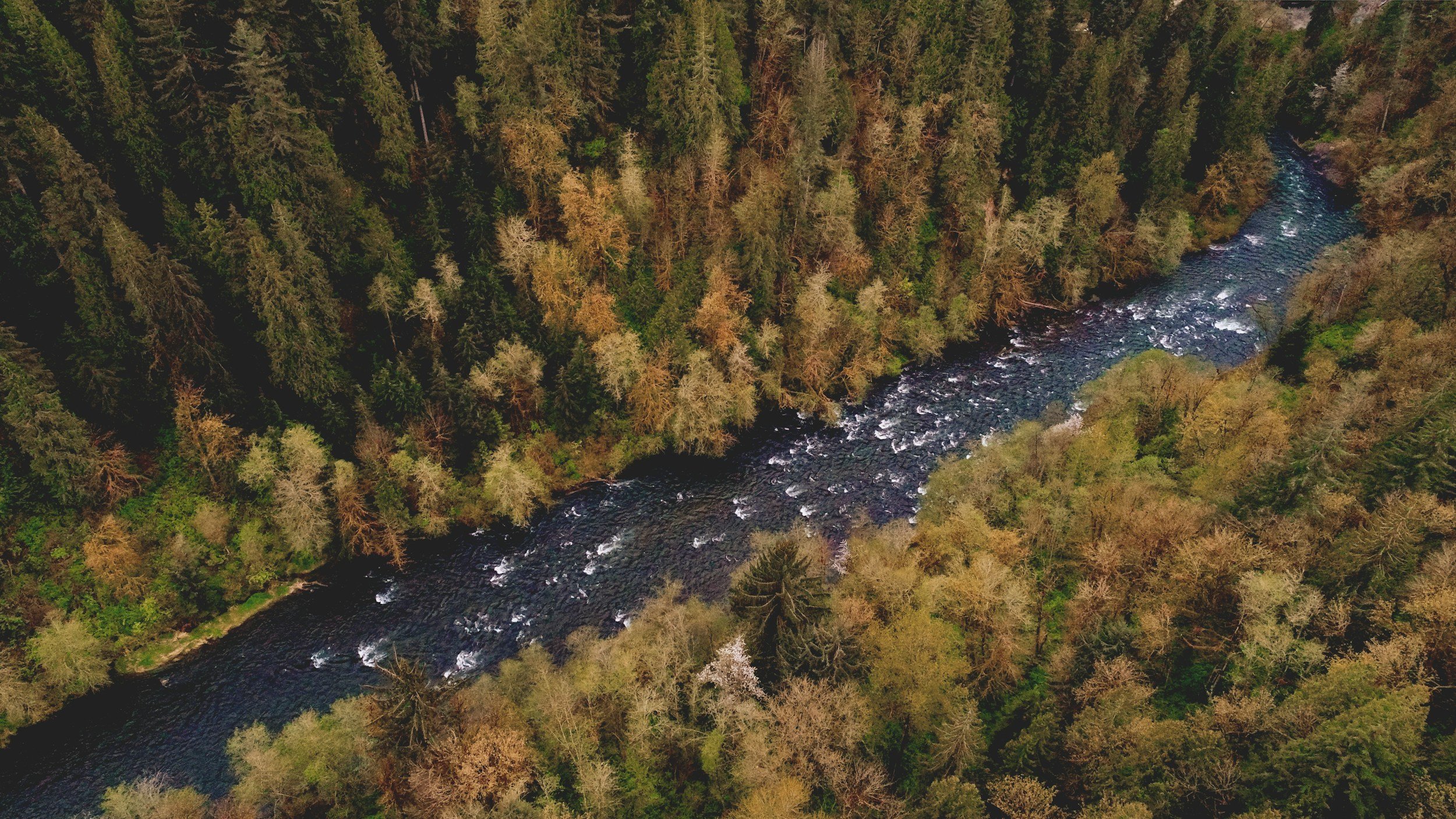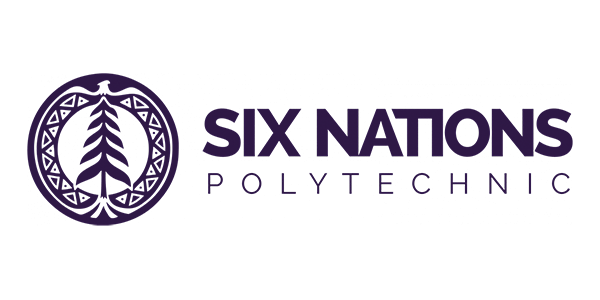
Indigenous Partners and Collaborators
Indigenous self-governance and rights, Indigenous-led research and education, and Indigenous knowledge play a critical role in mitigating climate change impacts. GCTW’s founding partners include the College of Menominee Nation, Six Nations Polytechnic Institute, and Red Lake Nation Department of Natural Resources, who are collaboratively developing water and climate adaptation solutions across GCTW activities.
The College of Menominee Nation (CMN), Six Nations Polytechnic Institute (SNP), and Red Lake Nation DNR (RL-DNR) are among the founding partners of GCTW who have envisioned the importance of establishing equitable and accessible climate change mitigation resources for transboundary communities.
GCTW recognizes that positive and long-lasting engagement with Indigenous peoples requires a foundation of trust among communities, collaborators, and partners. Honoring the intellectual rights of communities is paramount to the Center’s mission as it seeks to develop water and climate change solutions through innovative research and educational relationships.

Cultivating New Relationships
Indigenous partners are founding members of GCTW who assisted in crafting the original proposal for the research center. Dr. Kyle Whyte, (University of Michigan) and Dr. Dawn Martin-Hill (Six Nations of the Grand River) guided the creation and structural design of GCTW and involved key collaborators of theirs in the earliest phases of the proposal process: Six Nations Polytechnic, College of Menominee Nation, and Red Lake DNR.
Now, collaboration across Indigenous, U.S., and Canadian institutions is leading to the development of new understandings of climate change, community resilience, and ecosystem protection at GCTW. By providing safe, collaborative spaces for ideas and methods to be shared through new relationships and conversations, GCTW is proud to facilitate the growth of exciting transdisciplinary work among its partners.
Six Nations of the Grand River and Six Nations Polytechnic Institute
GCTW Collaboration with Six Nations of the Grand River
Six Nations of the Grand River, located between the eastern edge of Lake Erie and the western edge of Lake Ontario, is one of the three Indigenous communities that collaborates with the GCTW. Partnerships between GCTW and the Six Nations is lead by renowned Haudenosaunee activist and former McMaster University professor, Dr. Dawn Martin-Hill, whose leadership has helped forge avenues for connection and trust between the research center and the Six Nations community. With the guidance of Dr. Martin-Hill, the GCTW has also partnered with Six Nations Polytechnic Institute, a secondary learning institution on Six Nations territory, to continue to support Indigenous community research and learning opportunities for youth.
Haudenosaunee Hub of Indigenous Knowledge (HHIK)
The Haudenosaunee Hub of Indigenous Knowledge is an Indigenous-led community of researchers and activists based at Six Nations of the Grand River directed by GCTW Co-PI Dr. Dawn Martin-Hill. Strongly linked to the Ohneganos Indigenous Water Research Program, The Hub’s research and community engagement is guided by Indigenous Knowledge and bolstered by a strong partnership with Six Nations Polytechnic that helps advance research goals, develop capacity, and engage community members. The Hub works to support events like the 2024 Traditional Ecological Knowledge Summit, develop strategies to make STEM and TEK trainings more accessible to Indigenous youth, and partner with researchers to conduct hydrologic research on waterway and aquifer health. The GCTW is proud to partner with the Hub’s research team and continues to seek collabrative and safe opportunities to support Indigenous community goals.
Map of Six Nations of the Grand River territory and the Haldimand Tract (Six Nations Land Claim)
Makasa Looking Horse (GCTW-funded Six Nations Community Navigator) speaks at a protest of the Nestlé Waters bottling plant in Aberfoyle, Ontario, on November 24, 2018. Photo by Federico Olivieri
Red Lake Department of Natural Resources
GCTW Collaboration with Red Lake Department of Natural Resources
The Red Lake Nation’s Department of Natural Resources, based in the northwestern corner of the U.S. state of Minnesota, has partnered with the GCTW to collaborate on Red Lake community objectives and support capacity-building measures for transboundary cooperation along the 49th Parallel. The exciting partnership is led by Shane Bowe, Director of the Red Lake Band Water Resources Program, in partnership with GCTW Co-PI Dr. Kyle Whyte. Bowe has coordinated support from GCTW’s National Science Foundation funding stream for projects like an Indigenous-led Regional Monitoring Network, mercury monitoring in Upper and Lower Red Lakes, and cyanotoxin monitoring in the international waterway Lake of the Woods.
Indigneous-Led Regional Monitoring Network
GCTW partners at Red Lake DNR are developing a Tribally-led Monitoring Network that provides guidance to environmental managers on ways to effectively track and better understand extreme weather events and long-term changes in air temperature, precipitation, lake temperature, and other variables. The Network practitioners engage in the context of diverse approaches to understanding environmental change, including Indigenous Science, Traditional Ecological Knowledge, and western science-based modeling approaches. This integration represents a novel weaving of diverse ways of understanding climate change that is directly related to improving environmental governance across multiple jurisdictional boundaries.
Shane Bowe, Director of the Red Lake Band Water Resources Program and Senior Personnel at GCTW.
“Welcome to Miskwaagamiiwi-Zaaga’igan (Red Lake Nation)” sign.
The College of Menominee Nation
GCTW Collaboration with College of Menominee Nation Sustainable Development Institute (CMN-SDI)
The College of Menominee Nation Sustainable Development Institute, located in Keshena, Wisconsin on the Menominee Indian reservation, has partnered with GCTW to advance educational opportunities for Indigenous students and support the integration of Indigenous knowledge, values, understandings, and practices in sustainability initiatives, especially in relation to water. SDI Director Jennifer Gauthier is partnering with Co-PI Dr. Kyle Whyte and CMN staff to develop summer camps, mentoring opportunities, and conferences that engage Indigenous students over the duration of the Center’s collaboration.
The work seeks to build upon CMN-SDI’s strong tradition of collaboration among scientists, practitioners, Indigenous peoples, and students.
Left to right: Dr. Kyle Whyte (University of Michigan), Dr. Jennifer Gauthier (CMN-SDI), Rebecca Edler (CMN-SDI).
CMN-SDI graphic logo.



















